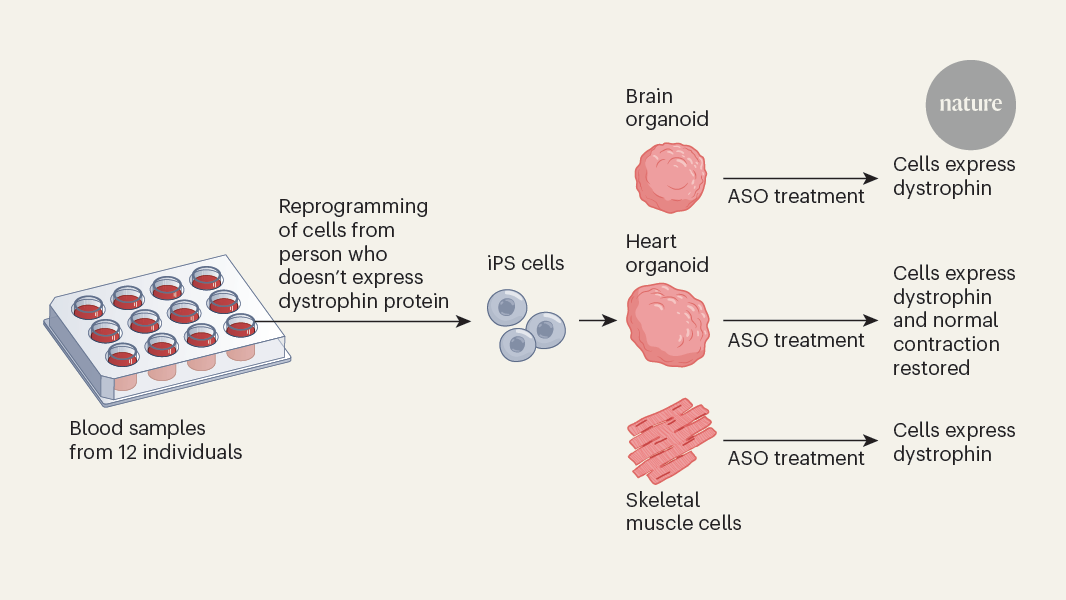Children who have genetic disorders often face health challenges that affect their development and quality of life. To address these challenges, scientists are exploring innovative treatments, including RNA-based therapeutics that use molecules called antisense oligonucleotides (ASOs). ASOs are small, custom-made synthetic molecules of RNA or DNA that are designed to correct the effects of genetic disorders by modifying the expression of the corresponding messenger RNAs. However, the wide implementation of this approach is restricted, because considerable time and financial resources are required to design and evaluate personalized ASOs in preclinical settings (in vitro or in vivo studies). Writing in Nature, Means et al.1 report the creation of a platform to accelerate the development of ASO therapies using a stem-cell-based system to generate mini-organs (organoids) — small 3D collections of cells that mimic the function and architecture of real organs. This innovative framework aids the efficient evaluation of personalized treatments, streamlining the process of identifying effective therapies.
Competing Interests
R.A.M.B. is a member of the Scientific Advisory Council of the Oligonucleotide Therapeutics Society and chair of the Stichting Dutch Antisense Therapeutics.


